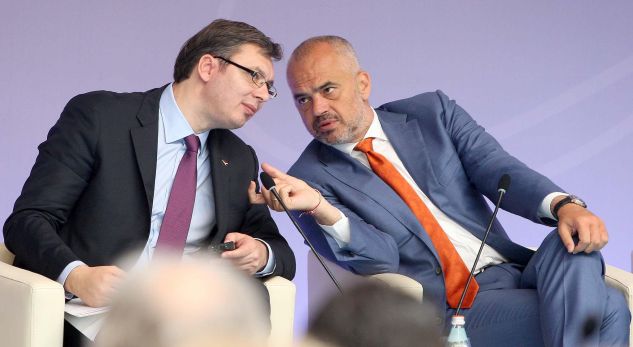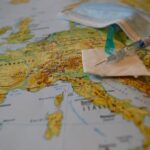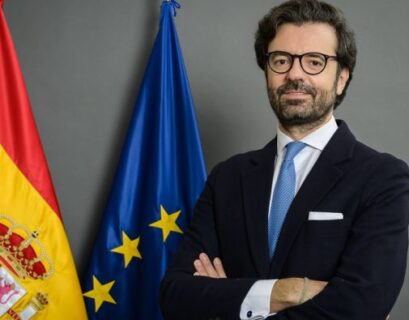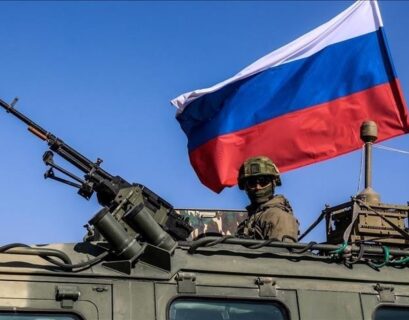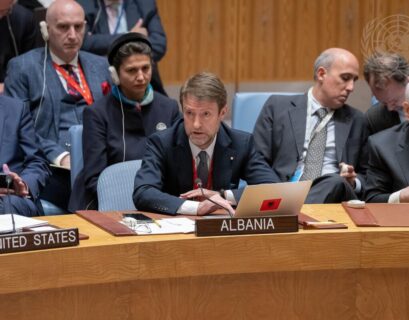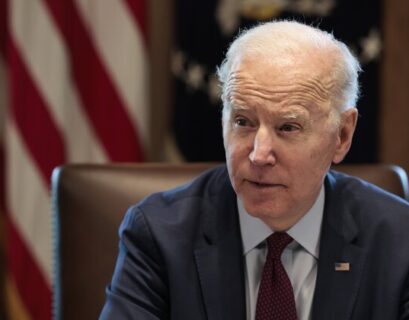Albert Rakipi Ph.D.
The issuing of official charges and the start of a trial for the former top leaders of the Kosovo Liberation Army in the Specialist Chambers in The Hague are an extreme development that may have serious political implications in Kosovo; but also in its relations with Serbia, as well as international relations in the region. This is true for at least three reasons: First, it is due to the fact that those accused of “establishing and directing a criminal enterprise” and “committing war crimes and crimes against humanity” are the very same people who founded and led the KLA — an undertaking aimed at protecting human lives and resisting Serbia’s state war machine, which is responsible for at least 10,000 victims, the displacement of 50 percent of Kosovo’s population as well as of massacres and genocide perpetrated on Kosovo’s civilian population. Those formally charged in The Hague are individuals, but in a final analysis, these charges are an attempt to criminalize the KLA and the just war of the people of Kosovo.
Secondly, among the top KLA leaders standing accused in The Hague is Hashim Thaçi, the central political figure of Kosovo for the past two decades, a former Prime Minister and former President of the Republic of Kosovo. During those two decades, he led the war, the process of independence and the process of state-building; as well as established and developed Kosovo’s international relations. At the end of that journey, he now stands accused of war crimes and crimes against humanity, paradoxically, by a court which would not have been created and approved without the political will of Hashim Thaçi himself.
Third, because the charges against former KLA leaders, who are also the former leaders of the Republic of Kosovo, have been filed by the Specialist Chambers Prosecutor’s Office and the trial will be conducted by the Specialist Chambers Court, both justice institutions of the Republic of Kosovo established by the parliament of Kosovo with a special law, this is an unprecedented case in the modern history of the administration of justice for war crimes.
More specifically, the charging and prosecuting of Kosovo’s top leaders are likely to have political implications in several aspects:
First of all, there are implications in Kosovo itself, in its domestic policies on the functioning of institutions, including the stability of the country. President Thaçi’s resignation has created not only a “vacancy” in one of the important institutions of the state, such as the presidency, but also a political vacuum that appears hard to fill with the simple act of electing a new president. The political scene in Kosovo may soon have a new configuration and political developments may create uncertainty, at least in the short term.
But it seems that there will be serious implications for Kosovo’s international relations too, first in line being its relations with Serbia. High-ranking politicians in Kosovo have called for a freeze on the EU-mediated dialogue process with Serbia. Recently, the Government of Kosovo rejected Belgrade’s request for a visit to Kosovo by the President of Serbia and the Minister of Defense. Moreover, the Ministry of Foreign Affairs of the Republic of Kosovo has stated that visits by Serb statesmen will not be allowed until Serbia apologizes for the crimes committed in Kosovo.
But, in the meantime, bringing Kosovo’s former President and other senior state officials to The Hague could have implications for international relations in the region, for example, in Albania’s relations with Serbia. On the day that the former President of Kosovo traveled to The Hague, the Prime Minister of Albania and the President of Serbia met (virtually) to discuss a number of agreements under the Balkan Mini Schengen, an initiative of Tirana and Belgrade to strengthen regional cooperation, an initiative of which Kosovo has rejected. The meeting of the heads of states and governments of the Western Balkans on the Mini Schengen initiative, held exactly on the day when the former President of Kosovo was traveling to The Hague, remained completely in the shadows in the Tirana media. Meanwhile, voices critical of Albania’s foreign policy toward Serbia have grown louder. According to the critics, Albania not only did not help, but went the other way entirely — harming Kosovo — because Tirana offered an unconditional approach to dealing with Belgrade. In its relations and discussions with Serbia, Albania has included Kosovo and its issues, as if the latter were a province of Albania. Other critics from Kosovo believe that through the deepening of relations with Serbia and the friendship that Tirana has offered to Belgrade, Albania has helped promote “a humane and democratic face of Serbia, at a time when Serbia has yet to face its criminal past, with even elements of the former Milosevic regime continuing to hold leading positions in the current government in Belgrade.”
Others accuse Serbia of being behind the setting up of the charges against the KLA, so Albania should review, and even consider freezing relations with Serbia.
Last, but not least in terms of the importance, the trial on charges on war crimes and crimes against humanity against the highest leaders of the KLA and the most important politicians of the Kosovo state, may have serious implications for the reconciliation process between Kosovo and Serbia, which is also the main avenue of the process of reconciliation of Albanians and Serbs in the Balkans. By accusing the KLA of war crimes, that strong dividing line between the aggressor and the victim, which had nevertheless begun to fade, could be erased as if it had never existed.
Perhaps, as Veton Surroi writes, with the accusations and the trial in The Hague, a process of dealing with the past and reconciliation can start with Albanians among themselves in Kosovo. However, a process of reconciliation and dealing with the past within the Albanian community in Kosovo will overshadow and even discourage the process of Serbia’s confrontation with its past, when Serbia operated as an aggressor state against Kosovo and its population. And as Dominique Moisi of the French Institute of International Relations points out, without dealing with the past, there is no reconciliation for states that have entered and been defeated in war.
The following article examines, first, Albania’s political response to the issuing of charges and the commencement of the trial against the former leaders of the KLA and the state of Kosovo, and, second, argues that, although it should revise its foreign policy toward Serbia, in fact also toward Kosovo, Albania should develop and strengthen relations with Serbia, relations which should be guided by the state and national interest of Albania and of course not by the short-term interests of power.
Using Kosovo politically in Tirana
When a journalist asked what Albania would do after news came out that Turkey — an ally and strategic partner of Albania, as it has been noted — is selling weapons to Serbia, Pandeli Majko, the former Albanian prime minister, answered: “Kosovo has us.” In fact, “Kosovo has Albania” and “Albania must help Kosovo” has been a prevailing narrative since the fall of the communist regime and the beginning of the disintegration of Yugoslavia. Despite the fact that the capacities, capabilities and opportunities of Albania to help have been very modest, the equation: “the mother country, Albania, must help Kosovo,” has remained unchanged, even now that Kosovo has entered its second decade of functioning as an independent state. Political elites on both sides of the border continue to feed this narrative while constantly failing to find ways of cooperating and helping each other as two independent states. Moreover, political leaders in Tirana and Pristina continue to use relations with Kosovo or relations with Albania, politically in the internal political struggle and for their short-term political interests. The dramatic development of the issuing of charges and the arrests of the leaders of Kosovo, starting from the head of state there, could not but have the attention and reaction of political Albania. And, regardless of the divisions and political alliances, or the political disputes and conflicts that exist among the leaders of Albania and Kosovo, the reaction of Tirana was an example of unity — something rare — in the attitude and reaction to the issuing of the charges: an expression of full support for the just struggle of the KLA and its leaders. Apart from expressing support, no assistance was actually expected from Albania.
Although the charges go beyond the personal fate of four or five individuals, they are related to Kosovo’s history, but also its future — the battle in The Hague is a legal one and must be won by the accused individuals.
Being essentially a legal battle, the chances for Albania to help are slim, if not all. Thus, no commitment was expected from Albania, or its leaders, its institutions, except for political statements and support for the just cause of the KLA during the war. Likewise, one could never expect this extreme development in Kosovo to be used politically for the internal political war in Albania, as has always happened with every issue and political development there. But the most incredible thing happened. Political leaders in Albania saw the charges and arrests of the former President of Kosovo and others as a golden opportunity to gain political advantage in Albania’s internal political struggle.
The government-controlled single-color parliament of Albania set up a special commission to investigate allegations against the KLA raised by Dick Marty in his report and the role of public institutions in Albania during the Kosovo war. According to the Socialists, the former government led by the Democratic Party, now in opposition, “voted in favor of Dick Marty’s report in 2012” and damaged the reputation of the KLA and Kosovo’s just war. As incredible as it may seem, it was a clear attempt to blame the opposition for Dick Marty’s report in 2012 and, consequently, for the accusations against KLA leaders in 2020. That action is extremely lamentable! Dick Marty’s report, on which no evidence was found against the KLA and which was buried by the International Court of Justice in The Hague, was exhumed by the Albanian Socialists ten years later. Despite demands from the entire political spectrum in Kosovo that, “Kosovo and its issues should not be used for the internal political war in Albania,” the Socialists carried on with the establishment of a special commission. The government even ordered the convening of parliament in an urgent session on Friday, Dec. 3, although earlier in the week the government itself had by decree suspended all meetings, including parliamentary sessions, due to the pandemic.
There is no doubt that the Socialists are trying to use Kosovo and the trial of KLA leaders for their electoral interests, just months before the parliamentary elections in Albania. After the establishment of the Parliamentary Commission, the accusations focused on the leader of the opposition, the Chairman of the Democratic Party, Lulzim Basha, who, according to the Socialists, while working for UMNIK “helped prepare the files” based on which the leaders of the KLA are now charged in The Hague. Moreover, even the investigation and allegations of organ trafficking in Albanian territory, found in the Dick Marty report, “were led by Basha,” according to the Socialists. But they did not stop there. They managed to “find” a witness “who stated that when EULEX had arrested him, Lulëzim Basha was also present, but, masked.” (? !!)
This tragic-comedy would continue with another witness, with whom, the head of the Socialist parliamentary group raised another accusation: Basha had hidden the crimes and the massacre that the Serbs had committed in Krusha, a Kosovo village. According to the head of the Socialists in parliament, the Democrats’ Basha had hidden the tape with the recording of the massacre. However, the witness himself stated in a TV interview that he had handed over the recording of the massacre in Krusha to the BBC, not Lulzim Basha, through another person, Dashamir Peza, who later went on to serve as a Socialist Party MP.
It is certainly unimaginable that such banalities will help the Socialists in the next political elections. No one can buy the Socialist argument that Kosovo’s leaders are in The Hague because of the previous Democratic Party government and its current leader, Lulzim Basha. Likewise, it has been difficult to push the political drive and sponsorship of the debate on “anti-national activity and against the KLA of the DP and Chairman Basha” as a way to avoid the attention and debate of the Albanian society on the economic and political crisis that Albania finds itself in. According to independent observers, the situation in Albania has been made worse by bad governance, the arrogance of the government, but also because of the 2019 earthquake and the current crisis caused by the COVID-19 pandemic.
How should the foreign policy toward Serbia change
There is no doubt that Tirana’s attempt to use the trial of Kosovo’s leaders in Albania’s domestic political conflict will negatively affect Albania’s relations with Kosovo, relations that are already increasingly conflictual. But the charges and the trial against the former KLA leaders are likely to damage Albania’s relations with Serbia as well. It would be necessary to critically review Albania’s relations with Serbia in the interest of their sustainable development, but also in favor of strengthening the very confusing relations between Albania and Kosovo. Albania’s populist approach to relations with Serbia has failed to lay the groundwork for lasting reciprocal ties; while, at the same time, this approach has negatively affected and damaged Albania’s relations with Kosovo. It is very likely that the same populist approach under the new circumstances of having the KLA’s former leadership in The Hague, will lead to a freezing of relations between Tirana and Belgrade and at the same time, maintain the status quo in relations between Albania and Kosovo.
Albania and Serbia are two key countries for the stability, security and economic development of the entire region. But, above all, Albania-Serbia relations are bilateral inter-state relations and they should be developed in a mutual way and based on shared interests. Over the past six years, relations between Tirana and Belgrade have developed modestly. Even after the enthusiasm of 2014, they soon reached a status quo, although the top leaders of the two countries, Prime Ministers Rama and Vucic, exchanged mutual visits and maintained an active dialogue and communication. There is currently no significant progress in economic relations and in trade exchanges, which have remained almost at the levels of 2014. The same is true for areas like investments and tourism — as well as education, in which there has been a failure, for example, to reach an agreement on the recognition of university degrees. There are several reasons for this situation and low level of relations, but a fundamental reason is that the Albania-Serbia bilateral relations have been “taken hostage” by the “Kosovo issue.”
During the last seven years, the agenda of Albania-Serbia bilateral relations has been dominated by a third state, Kosovo, even without the consent and will of the latter. It is clear that it is in Serbia’s interest for the agenda of bilateral cooperation with Albania to be dominated by Kosovo and Kosovo issues. Serbia, by keeping Kosovo on the agenda of relations with Albania, not only continues to question its independence, but seeks a “solution to the Kosovo issue” with Albania, which also questions the independence of a third state, Kosovo — an independence that has been recognized around the world.
During his 2014 visit to Belgrade, the Prime Minister of Albania called on Serbia to recognize Kosovo’s independence, which not only eclipsed any other issue of bilateral cooperation, but marked Kosovo as a key issue in these relations.
But before 2014, Albania and Serbia had supported the initiative of Italian Foreign Minister Mogherini to mediate bilateral meetings between Tirana and Belgrade. Through the “Mogerini initiative,” there was a tripartite tour of Rome-Tirana-Belgrade at the level of foreign ministers. I asked a senior Serbian diplomat what Italy mediates between Albania and Serbia, when currently the two countries have no problem seeking international mediation, even from a friendly country like Italy. “Kosovo is an independent state,” was my comment on his answer that “we have no other problem, except Kosovo.”
Simultaneously with the European diplomacy, the international press read and misinterpreted the “historic” visit “after seventy years, of the Prime Minister of Albania to Serbia.” Of course it was true that the visit of the Prime Minister of Albania in 2014 took place seventy years after the visit of Enver Hoxha in 1946. But the reason for such a long absence was not Kosovo at all, but the Cold War and Albania’s extreme self-isolation. The honeymoon between Yugoslavia and Albania ended in 1948, as is universally known, and not because of Kosovo.
With the exception of the first meeting in 2014 between Albania and Serbia, in which the Prime Minister of Albania publicly demanded the recognition of Kosovo as an independent state by Serbia, in all meetings of the past six years, Kosovo continued to dominate the bilateral agenda, but for purely technical issues such as the “arrest of the director of police in northern Kosovo,” the issue of driving licences, the Trepca Mine and the like, which are and should be the exclusivity of the Kosovo government. This agenda creates the perception that Kosovo is an autonomous province of Albania. Such a policy of Tirana created nervousness in Pristina, especially when it became clear that Albania’s ambitions were aimed at leading the peace process between Albanians and Serbs in the Balkans, when the Prime Minister of Albania stated that Albania and Serbia should do what Germany and France have done in Europe. To this erroneous equation of peace that Albania claimed, Kosovo responded that reconciliation with Serbia passes through Pristina and not through Tirana.
But Albania ignored and neglected this advice from Kosovo and together with Serbia undertook the initiative of the so-called Balkan Schengen. The real Schengen Agreement, as established and implemented in the European Union, is an idealistic and utopian vision in the Balkans. The Schengen Agreement in Europe was proposed long after Germany and France had made peace and many years after the establishment and functioning of today’s European Union. Think about whether Schengen would work in Europe, or even the European Union itself, if some of the countries did not recognize one of the countries, as is the case of Serbia and Bosnia-Herzegovina, the two Western Balkan states that do not recognize Kosovo.
On a political level, Albania’s initiative for the mini-Schengen in the region simply promotes its ambitions to lead peace and reconciliation in the Balkans by neglecting Kosovo, on which peace with Serbia actually depends.
At a theoretical and philosophical level, the proposal for a Schengen model in the Balkans could resolve disputes and conflicts through a bottom-up approach, applied by the European Union in the dialogue between Serbia and Kosovo, which has failed. In fact, it is the top-down approach that should be applied, with Serbia recognizing Kosovo as an independent state and then, through Schengen, or similar models, continue the process of reconciliation and dispute resolution on technical issues.
There is no doubt that with the latest developments with the charges being issued against former President Thaçi and other Kosovo leaders, the Albania-Serbia relations will decline further. This is also due to the pressure from populist elements in Albania and Kosovo. But the root cause of a possible decline or freezing of relations in the short and medium term, is the populist approach with which Tirana has built its policy toward Belgrade. A foreign policy built on populism is highly influenced by populist pressures and thus is easily made unstable: relations with Serbia can easily move from full-on enthusiasm to freezing or deteriorating for the same reason: populist approaches and drives. It is not useful, or even realistic and possible, for Albania to condition its relations with Serbia with Kosovo.
On the other hand, keeping Kosovo on the agenda of Albania’s relations with Serbia hinders the normal development of these relations and may lead to their freezing or deterioration, and, at the same time, can at least cast doubt on Kosovo’s independence, if it doesn’t undermine it altogether.


